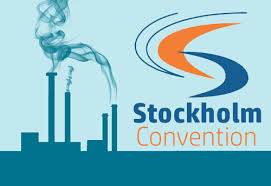
The Stockholm Convention on Persistent Organic Pollutants (POPs) is an international treaty that recognizes the need to take global action on the world’s most dangerous chemicals. Every two years, the Conference of Parties to the Convention meet to advance chemicals through the process of being listed for worldwide elimination.
The ninth Stockholm Convention Conference of the Parties (COP-9) of 182 nations met at the end of April in Geneva, Switzerland to consider recommendations of an international panel of experts to list perfluorooctanoic acid (PFOA), its salts and related compounds for worldwide elimination under the Convention, and to close loopholes on the listing of PFOS. These compounds are used in a wide variety of applications and consumer products including non-stick cookware, water-repellent and stain-resistant textiles, grease-resistant food packaging, paints and firefighting foams.
PFOA and related compounds have been linked to a number of adverse health effects including thyroid disease, immune system impairment, high cholesterol, pregnancy-induced hypertension, ulcerative colitis, kidney cancer, and testicular cancer.
PFOA is extremely persistent, is transported to remote locations on oceanic and atmospheric currents, and is found in wildlife and people of the Arctic.
Dicofol, an organochlorine pesticide that is chemically related to DDT was also considered for a global ban. Join this call to hear what the Conference of Parties decided about these persistent, toxic chemicals.
Featured Speakers
Samarys Seguinot-Medina, Environmental Health Program Director, Alaska Community Action on Toxics
Pamela Miller, Executive Director, Alaska Community Action on Toxics and Co-Chair, International POPs Elimination Network (IPEN)
Vi Waghiyi, Environmental Health and Justice Program Director, Alaska Community Action on Toxics
This call was hosted by the CHE-Alaska Partnership, which is coordinated by Alaska Community Action on Toxics (ACAT). It was a 60 minute call and was recorded for the call and webinar archive.
